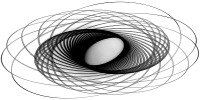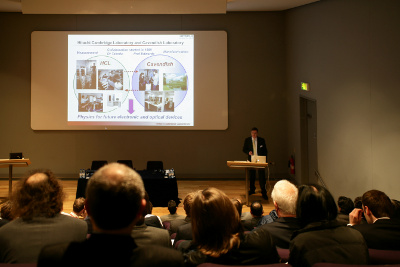F. C. Langbein, S. G. Schirmer. Quantum Engineering: From Einstein’s Spooky Action to Sustainable Technology? In: IEEE GOLDRush newsletter, peer-reviewed contribution, pp. 14-15, September 2010. [DOI:10.13140/RG.2.1.4109.1921] [Published] [PDF]
Quantum Engineering LinkedIn Group
We have just created a linkedin group to discuss applications of quantum phenomena for engineering applications and how to address related challenges in modelling, simulating, designing and controlling quantum devices on linked in: Quantum Engineering. Join us, if you are interested.
While the rich physics of quantum phenomena continues to provide amble opportunity for physics research, quantum effects, once considered strange, have moved into the realm of engineering as novel means to find innovative solutions to current problems. However, there are many challenges that must be overcome to make such technologies a reality, including building tools to model, design, simulate and control such devices. A further challenge that remains is to find novel quantum device designs and integrate them with current technology, and to find novel approaches to utilise quantum effects. This requires an interdisciplinary effort and presents an opportunity for many engineering disciplines such as nano-engineering, material science, electronic engineering and control systems engineering, to work together with computer science, physics, mathematics. It may sound like fantasy to create devices that are faster and smaller while requiring less energy, are easy to recycle and are made from ubiquitously available materials, but quantum engineering may well solve at least some of these problems.
![]() This work is licensed under a Creative Commons Attribution-NonCommercial-ShareAlike 4.0 International License.
This work is licensed under a Creative Commons Attribution-NonCommercial-ShareAlike 4.0 International License.

